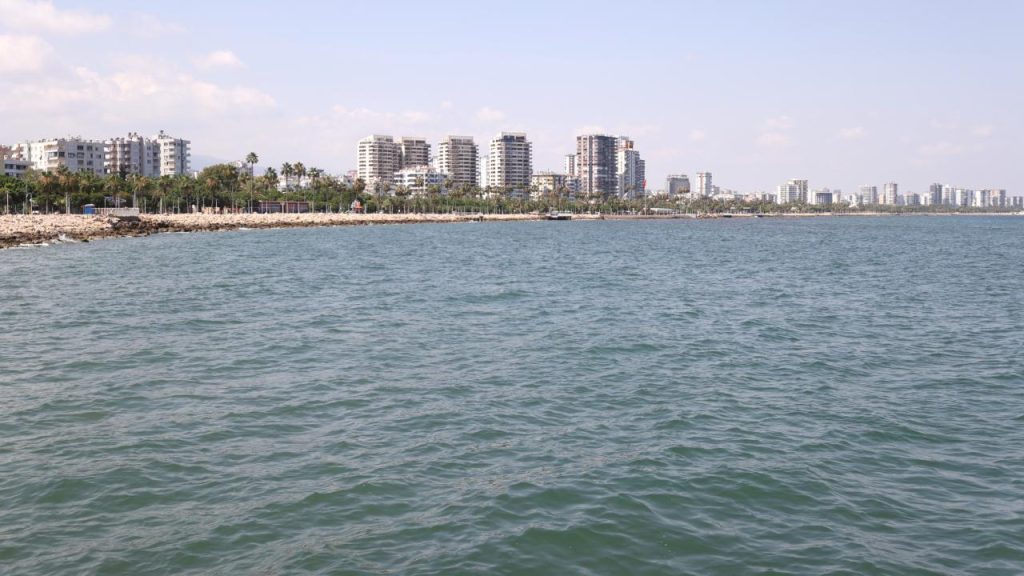According to Prof. Dr. Mehmet Gökoğlu, the temperature of the seawater in the Mediterranean is increasing due to the impact of global warming. In Antalya, the current sea water temperature is around 31-32 degrees Celsius, which is higher than last year. Gökoğlu stated that this year the temperature rose early, reaching 32 degrees in July, which is very high for the Mediterranean. He also mentioned that the increase in sea water temperature indicates the Mediterranean is becoming more tropical, with warmer winters, sudden rainfall, and storms signaling changes in the climate.
The rise in temperature poses a risk for all marine life, with some species facing the possibility of extinction, as stated by Gökoğlu. Changes in fish species in the region have also been observed, with the high temperature potentially causing the loss of some species in coastal areas and shallow waters. Gökoğlu pointed out that the rise in temperature has resulted in a decrease in the population of native species and mentioned the invasion of Red Sea species in coastal areas. The shift in species like Foursquare barbel and lizardfish being replaced by Red Sea species like striped comber and lizardfish was highlighted.
Gökoğlu also emphasized the significant damage being done to seagrass meadows of Posidonia in the Mediterranean basin. He likened Posidonia meadows to the Amazon forests of the Mediterranean coast, underscoring their importance in providing food for many species, enabling fish to lay eggs, sheltering fish larvae, and providing nourishment. The high temperature and pollution have contributed to the destruction of these meadows, which are crucial for maintaining marine life and oxygen levels in the seas.
In order to address these environmental issues, Gökoğlu stressed the importance of preventing global warming, phasing out fossil fuels, and taking measures to prevent the loss of forested areas that help regulate temperature. He also suggested increasing the amount of water flowing into the seas by allowing rivers to reach the ocean and utilizing them more efficiently. Gökoğlu advocated for clean river flow into the seas, reducing pollution, and moving away from unsustainable irrigation practices. He highlighted the role of Turkey in leading efforts to protect the Mediterranean basin from the impacts of global warming, as the region is one of the most affected by climate change, especially in the Eastern Mediterranean, where biodiversity is already undergoing significant changes.


